Keynote Speakers
Abraham Bernstein, University of Zurich, CH
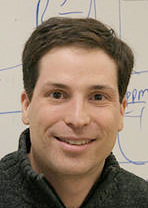 Short Bio:
Short Bio:
Abraham Bernstein is a Full Professor of informatics at the University of Zurich, Switzerland. His current research focuses on various aspects of the semantic web, knowledge discovery, service discovery/matchmaking, and mobile/pervasive computing. His work is based on both social science (organizational psychology/sociology/economics) and technical (computer science, artificial intelligence) foundations. Mr. Bernstein is a Ph.D. from MIT, where he has played a key role in the development of the Process Handbook (PH), which has been under development at the Center for Coordination Science (CCS). Prior to joining the University of Zurich Mr. Bernstein was on the faculty at New York University. He also worked for Union Bank of Switzerland, first as a research scientist at the corporate research center for information technology (UBILAB) and then as a project manager for IT-projects, where he worked on a variety of research issues such as HCI for complex tasks, document management, workflow management and data warehousing. Mr. Bernstein also holds a Diploma in Computer Science (comparable to a M.S.) from the Swiss Federal Institute in Zurich (ETH).
Keynote: Tuesday, May 29th | 09:00-10:30
Semantic Web/LD at a crossroads: Into the garbage can or to theory?
From Greek mythology (abbreviated from the Wikipedia):
Scylla and Charybdis were mythical sea monsters noted by Homer. Scylla was rationalized as a rock shoal (described as a six-headed sea monster) and Charybdis was a whirlpool. They were regarded as a sea hazard located close enough to each other that they posed an inescapable threat to passing sailors; avoiding Charybdis meant passing too close to Scylla and vice versa. According to Homer, Odysseus was forced to choose which monster to confront while passing through the strait…
Since its inception Semantic Web research projects have tried to sail the strait between the Scylla of overly theoretical irrelevance and the Charybdis of non-scientific applied projects.
Like Odysseus the Semantic Web community was wooed by the neatness of theoretical explorations of knowledge representation methods that endanger to crash the community into the Scylla – the rock of irrelevance.
On the other side the maelstrom of Charybdis attracts the community as it tries to fulfill the next vision of the next web thereby loosing its scientific identity.
In this talk I will discuss and exemplify the strengths, weaknesses, opportunities, and pitfalls (or threats) of each of these extremes. I will use this analysis as a basis for to explore some possible strategies to navigate the potentially stormy seas of the Semantic Web community's future.
Jeroen van Grondelle, Be Informed, NL
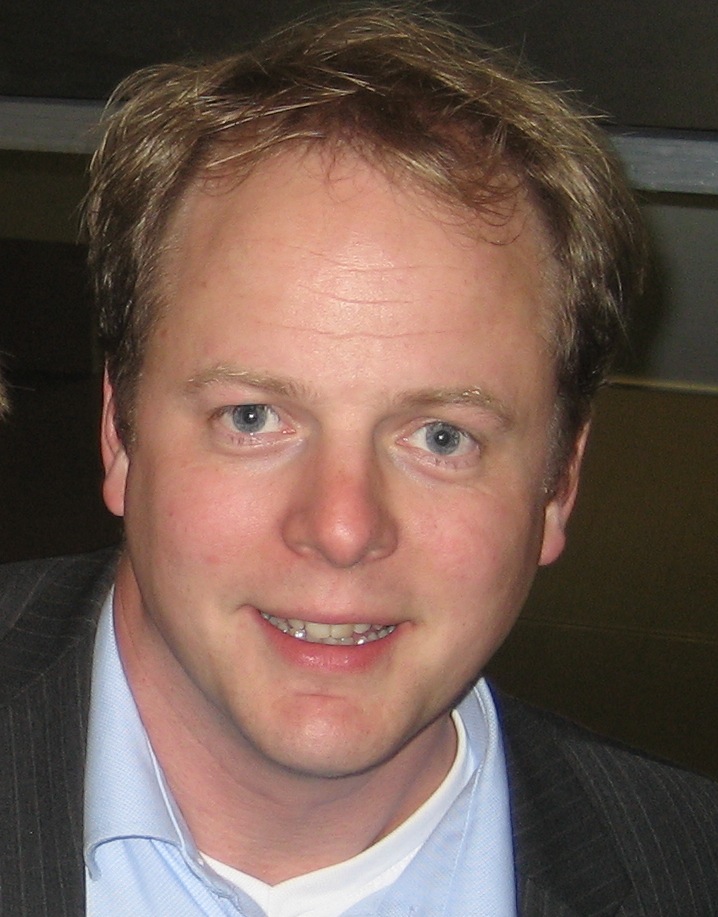 Short Bio:
Short Bio:
Jeroen van Grondelle is cofounder of Be Informed and one of the creators of its business process platform. Currently, he is principal architect at Be Informed, responsible for innovation and research. Because of its groundbreaking approach to business processes, it is crucial for Be Informed to cooperate closely with the academic world. Jeroen develops relations with universities, research institutes and other innovative enterprises. Through research projects, joint publications and case studies by visiting researchers, he is able to present researchers with real world challenges and experiences and is able to adopt the newest research developments early. Jeroen regularly speaks at conferences and seminars. He recently published a number of papers that dealt with enabling business experts to use formal representations in capturing their knowledge. He has a masters degree in mathematics from Utrecht University, specializing in algorithm design and large-scale parallel computing.
Keynote: Tuesday, May 29th | 14:00-15:30
New Audiences for Ontologies: Dealing with Complexity in Business Processes
Today, governments and businesses have to deal with high degrees of complexity: The products they offer are highly individualized, there are many regulations they must comply with and all this has to be dealt with under a growing rate of change. Many organizations have tried to meet this challenge by reducing complexity, through the elimination of exceptions etc. Jeroen van Grondelle, principal architect at Be Informed, argues that the only way to deal with complexity is by embracing it.
Ontologies have proven to be an excellent way to deal with all the different concepts that are introduced when products are defined and the supporting business processes are designed. When the right conceptualization is chosen, ontologies capture these policy choices in a natural way. Ontologies deal well with the heterogeneous nature of policy and regulations, which often originate from different legal sources and have different owners.
The benefits exist throughout the entire policy lifecycle. The formal, precise nature of ontologies improves the quality and consistency of the choices made and reduces ambiguity. Because ontologies are well interpretable by machines, Be Informed succeeds in inferring many of the supporting services, such as process applications and decision services, from the ontologies, thereby eliminating the need for systems development. And the ability to infer executable services also allows for advanced what-if {analysis} and simulation of candidate policies before they are put into effect.
Jeroen will show some examples where ontologies were successfully applied in the public sector and what the impact was on all parties involved, from policy officers to citizens. He will also present some of the research challenges encountered when ontologies are put to so broad use.
Alon Halevy, Google, Data Spaces, USA
 Short Bio:
Short Bio:
Alon Halevy heads the Structured Data Management Research group at Google. Prior to that, he was a professor of Computer Science at the University of Washington in Seattle, where he founded the database group. In 1999, Dr. Halevy co–founded Nimble Technology, one of the first companies in the Enterprise Information Integration space, and in 2004, Dr. Halevy founded Transformic Inc., a company that created search engines for the deep web, and was acquired by Google. Dr Halevy is a Fellow of the Association for Computing Machinery, received the the Presidential Early Career Award for Scientists and Engineers (PECASE) in 2000, and was a Sloan Fellow (1999–2000). He received his Ph.D in Computer Science from Stanford University in 1993. He is also a bit of a coffee nut.
Keynote: Thursday, May 31st | 09:00-10:30
Bringing (Web) Databases to the Masses
The World-Wide Web contains vast quantities of structured data on a variety of domains, such as hobbies, products and reference data. Moreover, the Web provides a platform that can encourage publishing more data sets from governments and other public organizations and support new data management opportunities, such as effective crisis response, data journalism and crowd-sourcing data sets. To enable such wide-spread dissemination and use of structured data on the Web, we need to create a ecosystem that makes it easier for users to discover, manage, visualize and publish structured data on the Web.
I will describe some of the efforts we are conducting at Google towards this goal and the technical challenges they raise. In particular, I will describe Google Fusion Tables, a service that makes it easy for users to contribute data and visualizations to the Web, and the WebTables Project that attempts to discover high-quality tables on the Web and provide effective search over the resulting collection of 200 million tables.
Alek Kołcz, Twitter, USA
 Short Bio:
Short Bio:
Aleksander Kołcz is currently with Twitter, where he focuses on applying Machine Learning and Data Mining techniques to modeling user interests and to preventing service abuse. He has 12 years of industrial R&D experience at Microsoft, AOL and Personalogy. He received his PhD in 1996 from the University of Manchester Institute of Science and Technology.
Keynote: Thursday, May 31st | 14:00-15:30
Large Scale Learning at Twitter
Twitter represents a large complex network of users with diverse and continuously evolving interests. Discussions and interactions range from very small to very large groups of people and most of them occur in the public. Interests are both long and short term and are expressed by the content generated by the users as well as via the Twitter follow graph, i.e. who is following whose content.
Understanding user interests is crucial to providing good Twitter experience by helping users to connect to others, find relevant information and interesting information sources.
The manner in which information is spread over the network and communication attempts are made can also help in identifying spammers and other service abuses.
Understanding users and their preferences is also a very challenging problem due to the very large volume information, the fast rate of change and the short nature of the tweets. Large scale machine learning as well as graph and text mining have been helping us to tackle these problems and create new opportunities to better understand our users. In the talk I will describe a number of challenging modeling problems addressed by the Twitter team as well as our approach to creating frameworks and infrastructure to make learning at scale possible.
Monica Lam, Stanford University, USA
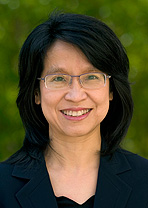
Short Bio:
Monica S. Lam has been a Professor in the Computer Science Department at Stanford University since 1988. She received her PhD in Computer Science from Carnegie Mellon University. She is the Faculty Director of the Stanford MobiSocial Computing Laboratory. Her current research interest is in creating open social computing platforms. She has worked in the areas of high-performance computing, compiler optimizations, software analysis to improve security, and simplifying computer management with virtualization. She is a co-author of the "Dragon book" and the founding CEO of MokaFive, a desktop virtualization company started by her research group. Monica is an ACM Fellow.
Keynote: Wednesday, May 30th | 09:00-10:30
Musubi: A Decentralized Mobile Social Web
With the rise of cloud services, users' personal data (from photos to bank transactions) are scattered and hosted by a variety of application service providers. Communication services like email and social networking, by virtue of helping users share, have the unique opportunity to gather all data shared in one place. As users shift their communication medium from email to social networks, personal data are increasingly locked up in a global, proprietary social web.
We see the rise of the mobile phone as an opportunity to re-establish an open standard, as social data are often produced, shared, and consumed on the mobile devices directly. We propose an API where apps can interact with friends' phones directly, without intermediation through a centralized communication service. Furthermore, this information can then be made available on our own devices to personalize and improve online interactions. Based on this API, we have created a working prototype called Musubi (short for Mobile, Social, and UBIquitous) along with various social applications, all of which are available on the Android market.
Márta Nagy-Rothengass, European Commission
 Short Bio:
Short Bio:
Márta Nagy-Rothengass graduated and received doctor degree in Economics and she was awarded MBA.
She has broad working experience Europe wide in business and public environment. She dealt with initiation and transaction of trade agreements, taught Business Studies, managed social association and did consultancy work. She gathered her interest on ICT while establishing "New Media" by a traditional German manufacturing company.
She joined the EC in 2005 as the Head of Unit of "ICT for the Environment" in DG INFSO and developed her Unit further to "ICT for Sustainable Growth" linked to the integrated climate and energy policy. Since 2008 Márta is working as Head of Unit "Technologies for Information Management" in Luxembourg. Her Unit manages and co-funds research and development projects on innovative ICT technologies dealing with creation of intelligent digital objects and knowledge management, supporting knowledge exchange and "semantic web". Main focus of her work is effective and efficient management of extremely large scale data including Open Data and establishment of open data portals.
Keynote: Wednesday, May 30th | 14:00-15:30
Data Value Chain in Europe
Data is today everywhere. The quantity and growth of generated data is enormous, its proper management challenges us individual users but also business and public organisations. We are facing data/information overflow and we are often handicapped by storing, managing, analysing and preserving all of our data.
At the same time, this growing large amount of data offers us due to its intelligent linkage, analysis and processing
- business opportunities like establishment of new, innovative digital services towards end users and organizations;
- better decision making support in business and public sector; and
- increased intelligence and better knowledge extraction.
This is the reason why many of us see data as the “oil of the 21th century”. We are challenged to unlock the potential and the added value of complex and big data. It has become a competitive advantage to offer the right data to the right people at the right time.
In my talk I will introduce the “value chain thinking” on data, than analyse its main technology and business challenges and inform about the ongoing and envisaged policy, infrastructure, research and innovation activities at European level.
Dinner Keynote
John Domingue, The Open University, UK
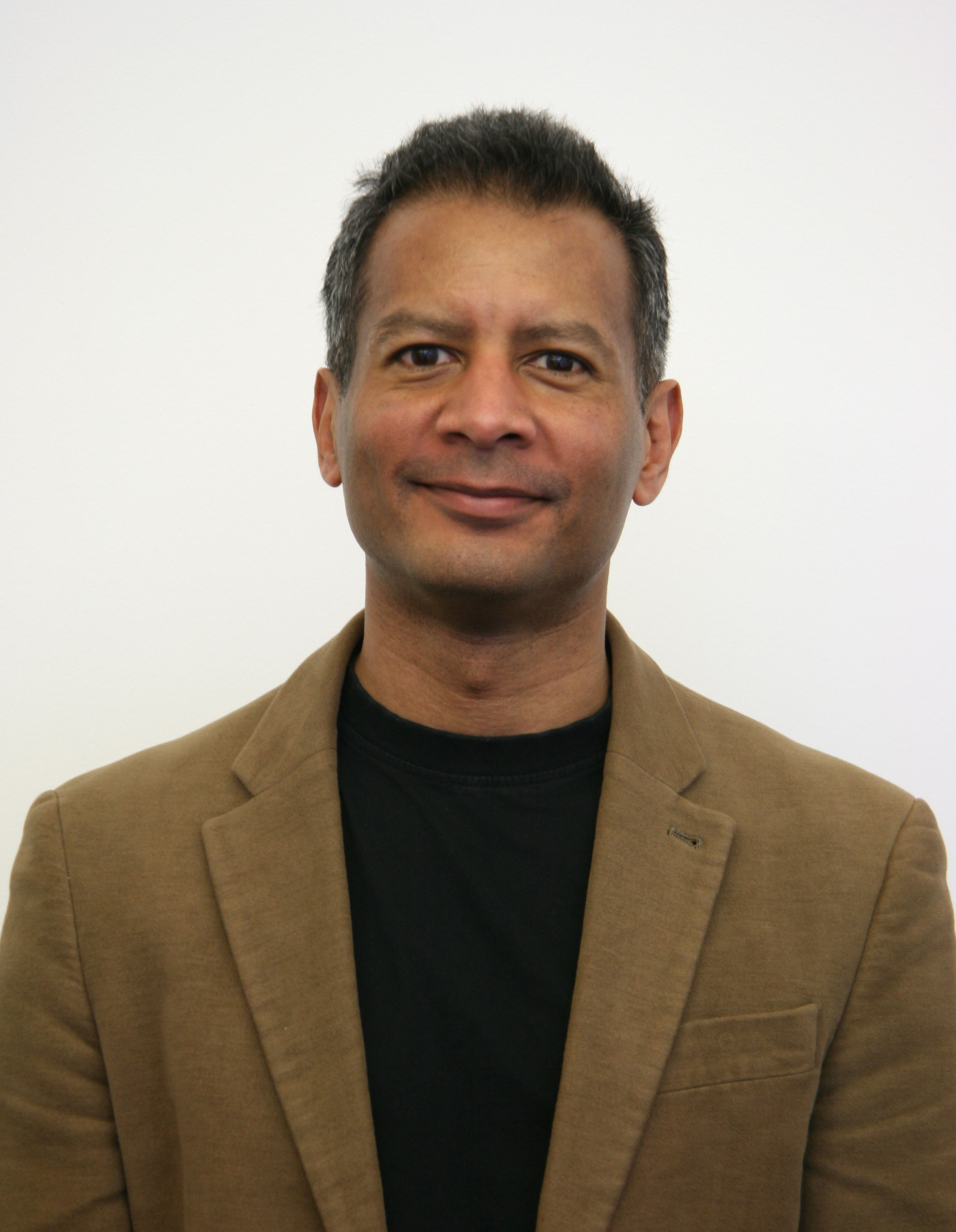 Short Bio:
Short Bio:
Prof. John Domingue is the Deputy Director of the Knowledge Media Institute at The Open University and the President of STI International. In the main over the last few years his work has focused on how semantic technology can automate the management, development and use of Web services. In furthering this over the last six years he has served as the Scientific Director for three large European projects covering semantics, services, the Web and business process management. Within the Future Internet arena he serves as a member of the Future Internet Assembly Steering Committee. This assembly is a collaboration amongst over 150 European projects with a combined budget of over half a billion Euros aiming to develop a next-generation global communications infrastructure. He current serves as Chair of the ESWC Steering Committee and on the editorial boards for the Journal of Web Semantics and the Applied Ontology Journal.
Keynote: Wednesday, May 30th | 20:30
Improving the Impact and Takeup of Semantic Web Research
We’ve come a long way from small pockets of researchers contemplating how knowledge can be acquired, managed and used to a research area which has received many millions of Euros and Dollars in funding and is taken seriously by national governments and a number of major industrial players. I believe that the time is now ripe to take the next step. How do we become as large and as ubiquitous as for example the telecoms industry? In this talk I will outline a number of radical strategies which occasionally will be backed up by evidence and rationale.
Pre-Conference Keynote
Julius van de Laar, Strategic Campaigns & Communication, Germany
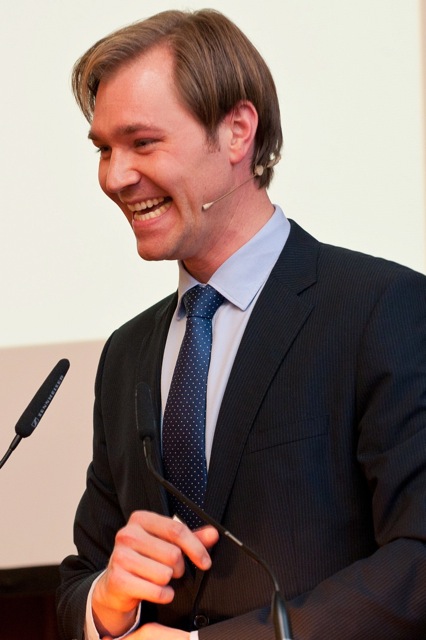
Short Bio:
Julius van de Laar is a political strategist and communications expert with strong campaigning experience. He has consulted politicians and political parties, non-governmental organizations, and private sector corporations developing strategies to achieve their goals: developing a compelling campaign narrative, winning elections, advocating for issues, raising money, growing their membership and creating a movement.
During the 2008 US Presidential election, Julius van de Laar worked for Barack Obama's winning presidential campaign in nearly a dozen states. There, he focused on targeting voters and gaining supporters by combining proven campaigning strategies with the latest new media tactics.
Since then, van de Laar served as a senior strategist to Germany's Social Democratic Party in the 2009 federal election cycle, as well as other parties and candidates across Europe. He has consulted for major NGO's including Amnesty International, WWF and Avaaz, providing strategic advice in online and social media campaigning.
Van de Laar is a frequent TV and radio pundit, providing analysis on current political events and online campaigning. He lectures at conferences and universities, gives workshops on campaigning and social media and advises politicians and business leaders on strategic communications.
Keynote: Monday, May 28th | 17:30-18:30
Cutting through the noise: How to shape public perception, frame the debate and effectively engage your audience in the digital age
Successful political campaigns have mastered the tactics and strategies used to effectively present an argument, manage and respond with authority during crisis, influence the debate and shape public perception.
Yet, in today’s 24/7 media environment it has become more difficult than ever to set an agenda, frame an issue or engage an audience.
Four years ago, Barack Obama set a new standard for campaigning by changing the way new media was used to build an aspirational brand, engage and empower supporters, raise money and turn out voters. As the 2012 presidential race unfolds, the campaigns are stepping up their game. And in this cycle, they are embracing digital media more than ever.
However, it’s not only the President’s campaign and his opponents who are faced with the challenge to create a narrative and frame the public debate. Organizations in the private sector often deal with the similar complex issues as they struggle to deliver tailored messages to target their audience, regardless of whether its costumers, investors, media, the general public or even potential employees.
From storytelling to big data lifestyle targeting: Julius van de Laar will provide a first hand account on how today’s most effective campaigns leverage battle tested strategies combined with new media tools to create a persuasive narrative and how they translate into actionable strategies for the corporate context.















